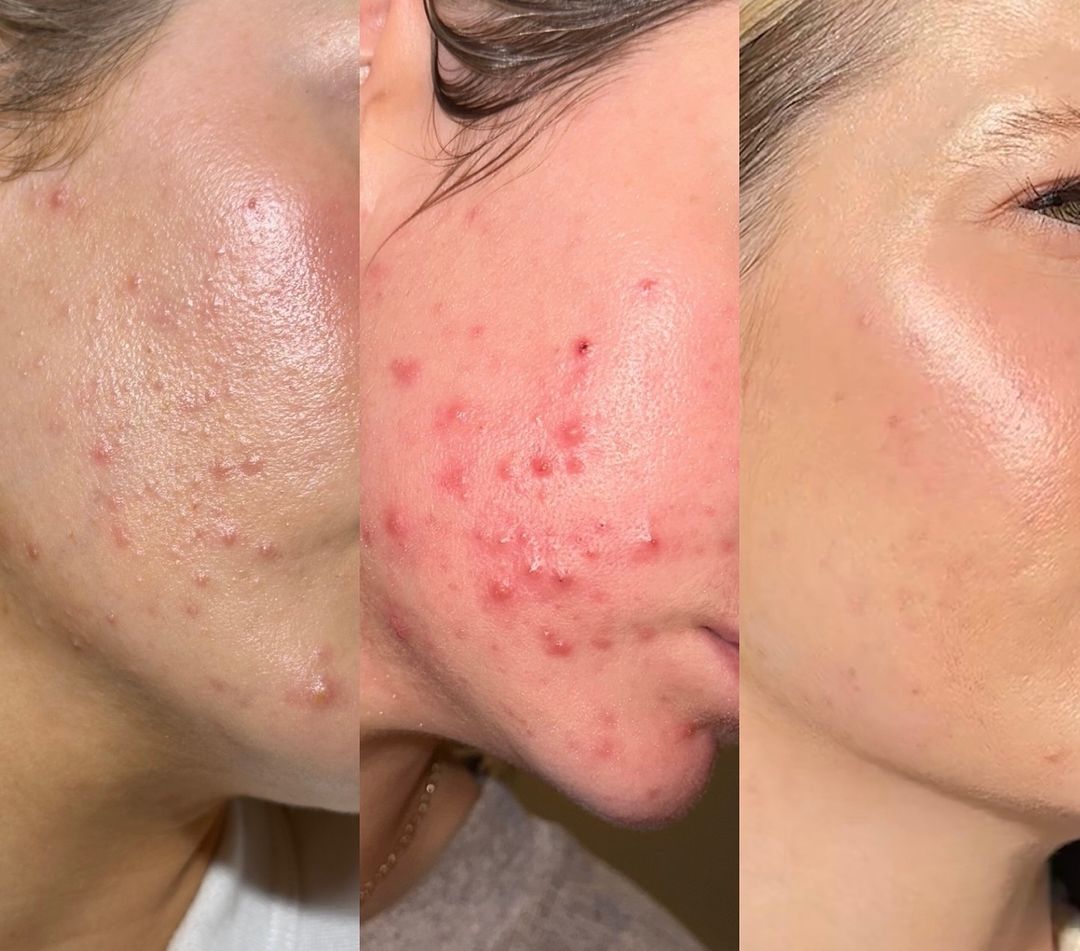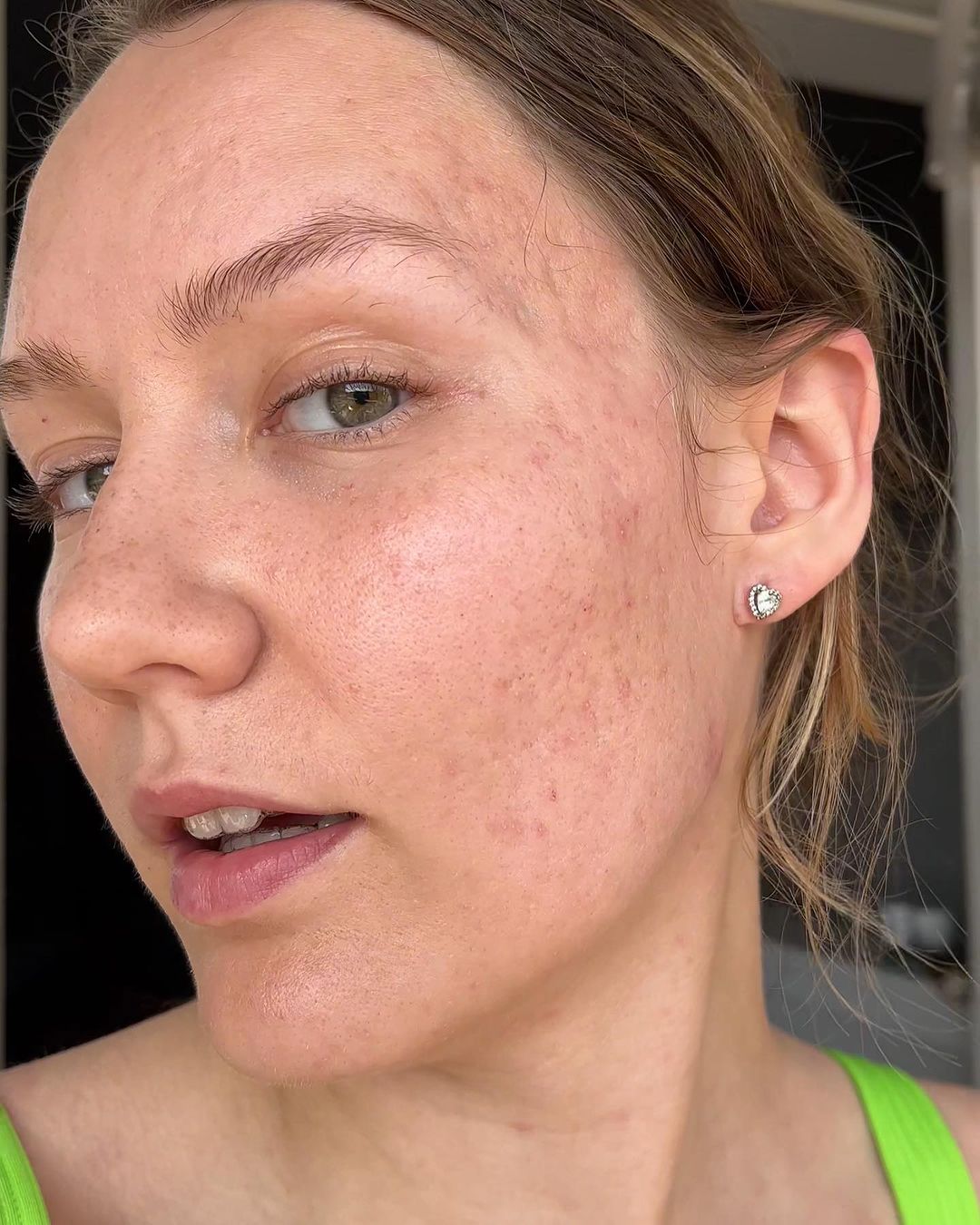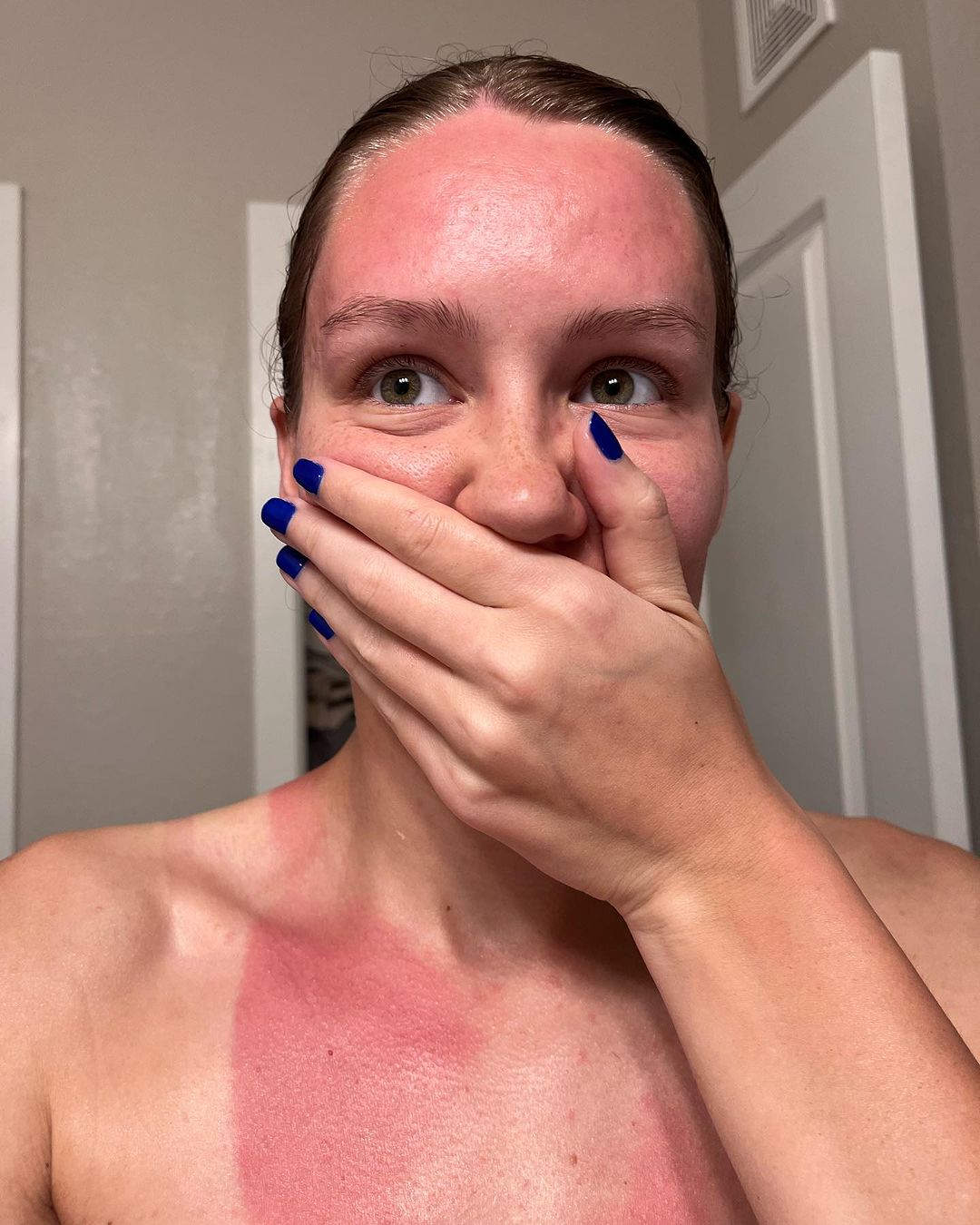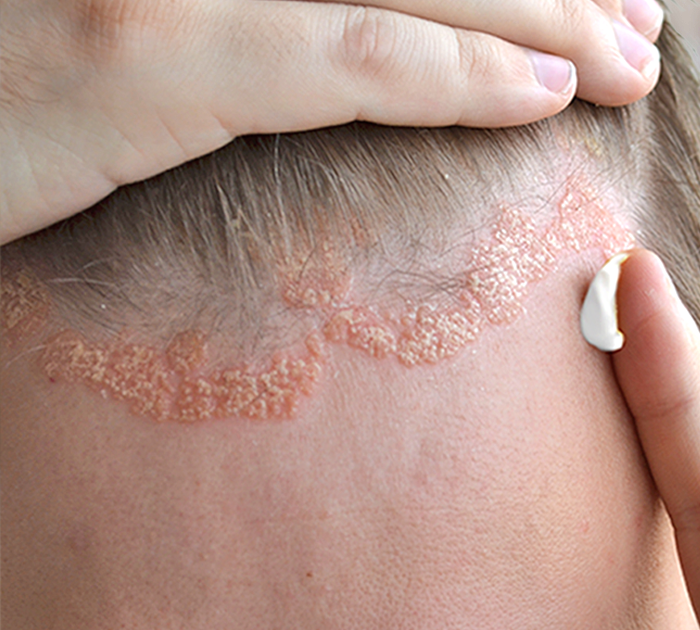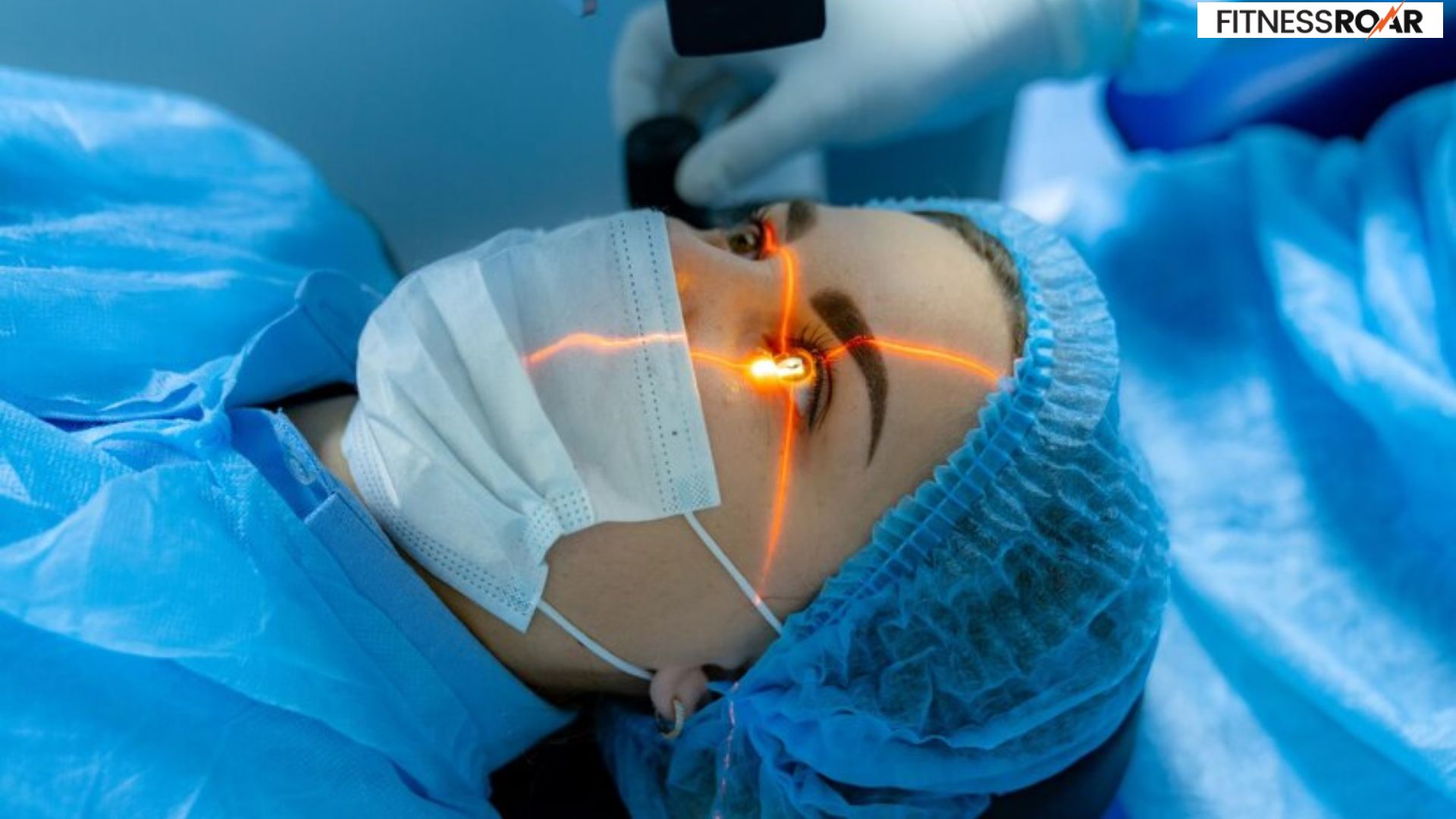Dry Acne Prone Skin: Your Guide to Clear, Hydrated Skin
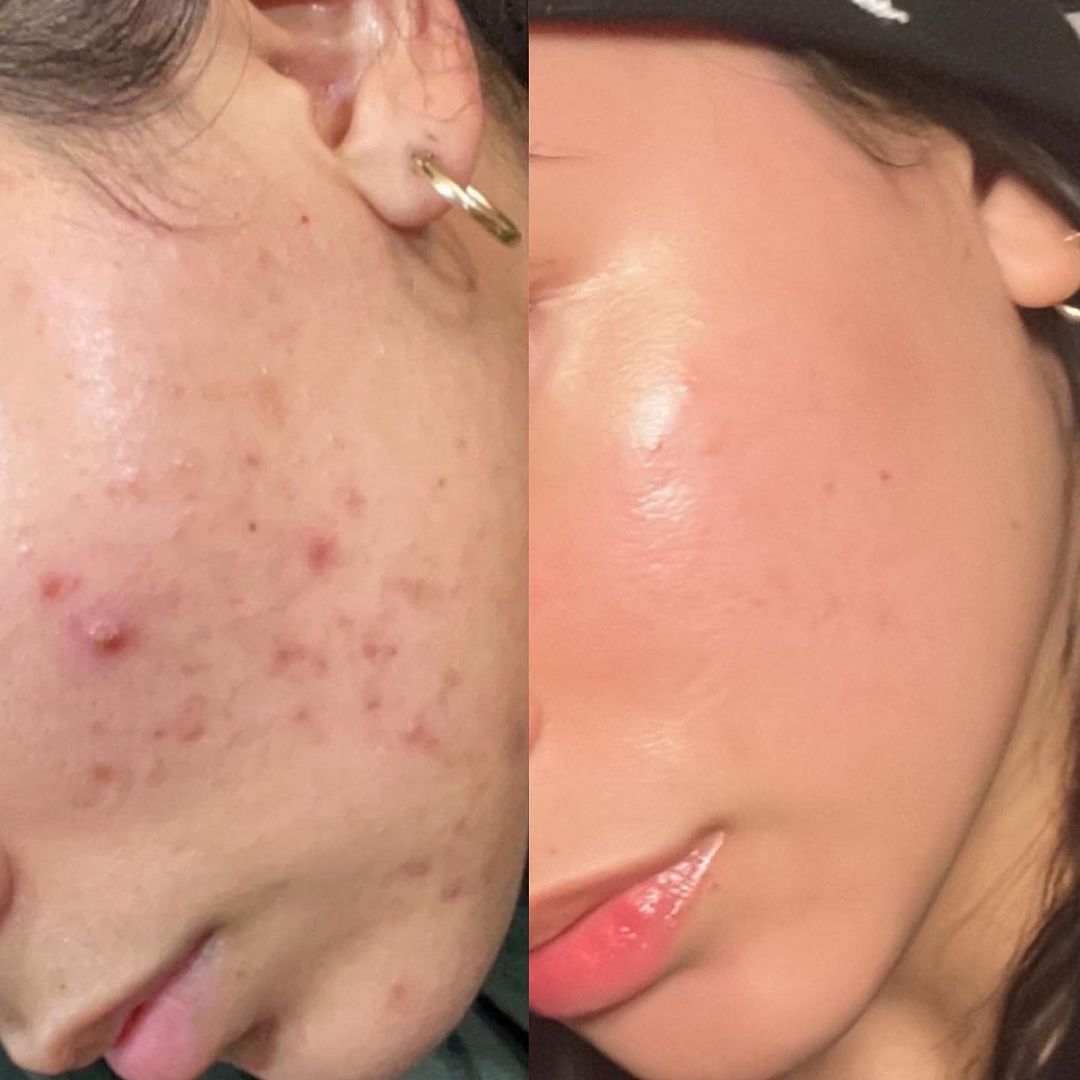
Acne vulgaris, commonly known as acne, is a widespread skin condition that affects millions of people around the globe. It occurs when hair follicles become clogged with oil and dead skin cells, creating an environment for bacteria to thrive. This can lead to the formation of whiteheads, blackheads, pimples, and even cysts. Acne typically develops on the face, chest, back, and shoulders, areas with a higher concentration of oil glands.
While acne is most commonly associated with teenagers, it can affect people of all ages. In fact, studies suggest a rise in adult acne, particularly among women.
Here’s the twist: having dry skin doesn’t necessarily mean you’re safe from acne. Surprisingly, dry skin can also be prone to breakouts. This might seem counterintuitive, but it highlights the complex nature of skin health. We’ll delve deeper into this concept of dry, acne-prone skin in the next section.
Also Read: Basic Tips for Winter Skin Care
How Dry Acne Develops
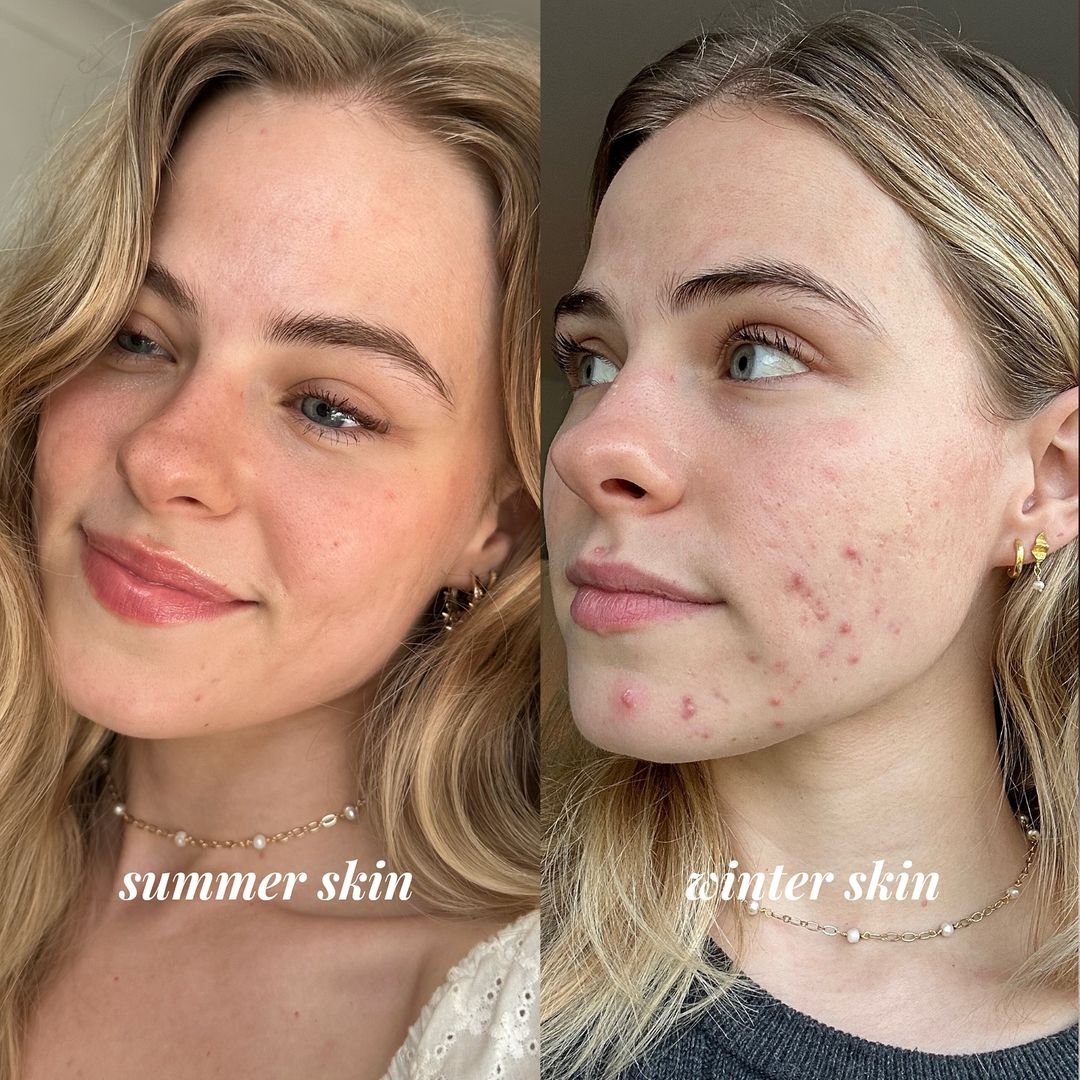
While acne is often linked to oily skin, dry skin can indeed exacerbate breakouts. Here’s why:
Overcompensation: When your skin lacks moisture, it sends signals to the oil glands to ramp up sebum production. Sebum is a natural oil that helps keep skin supple, but excess sebum can mix with dead skin cells, clogging pores and creating a breeding ground for acne-causing bacteria.
Impaired Barrier: Dry skin has a compromised skin barrier, the outermost layer that shields your skin from irritants and helps retain moisture. This weakened barrier allows bacteria to penetrate deeper, further promoting inflammation and breakouts.
Harsh Treatments: Acne treatments, particularly those containing ingredients like salicylic acid or benzoyl peroxide, can be drying. While effective for acne control, they can worsen dryness, triggering the overcompensation cycle mentioned earlier.
Factors Contributing to Dry Acne
Several factors can contribute to the development of dry, acne-prone skin:
Genetics: Some people are simply predisposed to drier skin or more active oil glands.
Climate: Dry, cold weather or low humidity can exacerbate dryness.
Skincare Habits: Using harsh cleansers, hot showers, or scrubbing your face can strip away natural oils, leading to dryness.
Certain Medications: Some medications, like diuretics or retinoids, can have a drying side effect.
Understanding these factors can help you develop a targeted skincare routine to address both dryness and acne.
Common Questions Answered
Dry acne can be frustrating, but with the right approach, you can see improvement. Here are some answers to common questions:
How long does it take for dry acne to go away?
Unfortunately, there’s no one-size-fits-all answer. It depends on the severity of your acne and how well you respond to treatment. However, most people see noticeable improvement within 4-6 weeks of implementing a consistent skincare routine. Be patient, as it takes time for your skin to adjust and heal.
What is best for acne dry skin?
The key is to strike a balance. You need to address the acne without further drying your skin. Here’s what to focus on:
- Gentle Cleansing: Use a fragrance-free, non-comedogenic cleanser that removes dirt and oil without stripping away moisture.
- Moisturizing: Apply a lightweight, oil-free moisturizer twice daily to replenish hydration and strengthen your skin barrier. Look for ingredients like hyaluronic acid or ceramides.
- Spot Treatment: Use a targeted acne treatment containing salicylic acid or benzoyl peroxide, but only on blemishes, not your entire face. Opt for oil-free formulas to minimize dryness.
Why is my skin not clearing up?
There could be a few reasons:
- Inconsistent Routine: Sticking to your skincare routine is crucial. It can take weeks for treatments to show results.
- Harsh Products: Re-evaluate your products. Are they too drying or irritating?
- Underlying Condition: Sometimes, hormonal imbalances or medical conditions can contribute to acne. If your acne is severe or persistent, consult a dermatologist.
Why am I still breaking out with a good skincare routine?
Even with a good routine, occasional breakouts can happen. Here are some possibilities:
- Stress: Stress can worsen acne. Practice relaxation techniques like meditation or yoga.
- Diet: Certain foods, like dairy or sugary drinks, might trigger breakouts for some people. Pay attention to your diet and see if any adjustments help.
- Product Purging: When you start a new acne treatment, your skin might initially purge (break out more) before it clears up. Give it time to adjust, but consult a dermatologist if the purging is severe.
Remember, consistency and patience are key. By addressing dryness and targeting acne with the right approach, you can achieve clearer, healthier skin.
Can dry acne prone skin use salicylic acid?
Salicylic acid can be a double-edged sword for dry, acne-prone skin. It’s effective for clearing pores and fighting acne, but it can also be drying. Here’s how to navigate:
Low Concentration: Opt for products with a lower concentration of salicylic acid (around 1-2%).
Spot Treatment: Use salicylic acid as a spot treatment only on blemishes, not your entire face.
Moisturize Well: Always follow up with a good moisturizer to counteract any dryness.
Also Read: Secret Tips to Burn Fat Effectively
Is salicylic acid good for Dry Skin?
Not necessarily. While it can address acne, salicylic acid can be too harsh for dry skin, leading to irritation and worsening the dryness. Consider gentler alternatives like azelaic acid or mandelic acid for acne control on dry skin.
Which oil is best for dry acne prone skin?
Not all oils are comedogenic (pore-clogging). Certain oils can actually benefit dry, acne-prone skin by replenishing moisture and calming inflammation. Look for non-comedogenic oils like jojoba oil, rosehip oil, or grapeseed oil. Apply a few drops after your moisturizer for extra hydration.
Does putting Vaseline on face cause acne?
Vaseline itself isn’t inherently comedogenic, but its thick, occlusive nature can trap oil and dirt on acne-prone skin. If you have very dry skin, it might be okay to use Vaseline as a very thin layer at night. However, for daytime use on acne-prone skin, opt for lighter, non-comedogenic moisturizers.
Should I moisturize at night if I have acne?
Absolutely! Nighttime is when your skin repairs itself. A good moisturizer will help replenish moisture, strengthen your skin barrier, and promote healing. Look for lightweight, oil-free formulas that won’t clog pores.
Is it better to moisturize or dry out acne?
Drying out your skin will only worsen the problem. It can trigger your oil glands to overproduce sebum, leading to more breakouts. Moisturizing is crucial for maintaining a healthy skin barrier and preventing further irritation.
Should you moisturize or dry out acne?
Moisturize! As mentioned earlier, drying out your skin is counterproductive for acne treatment.
Why does my face get so dry but moisturizer makes me break out?
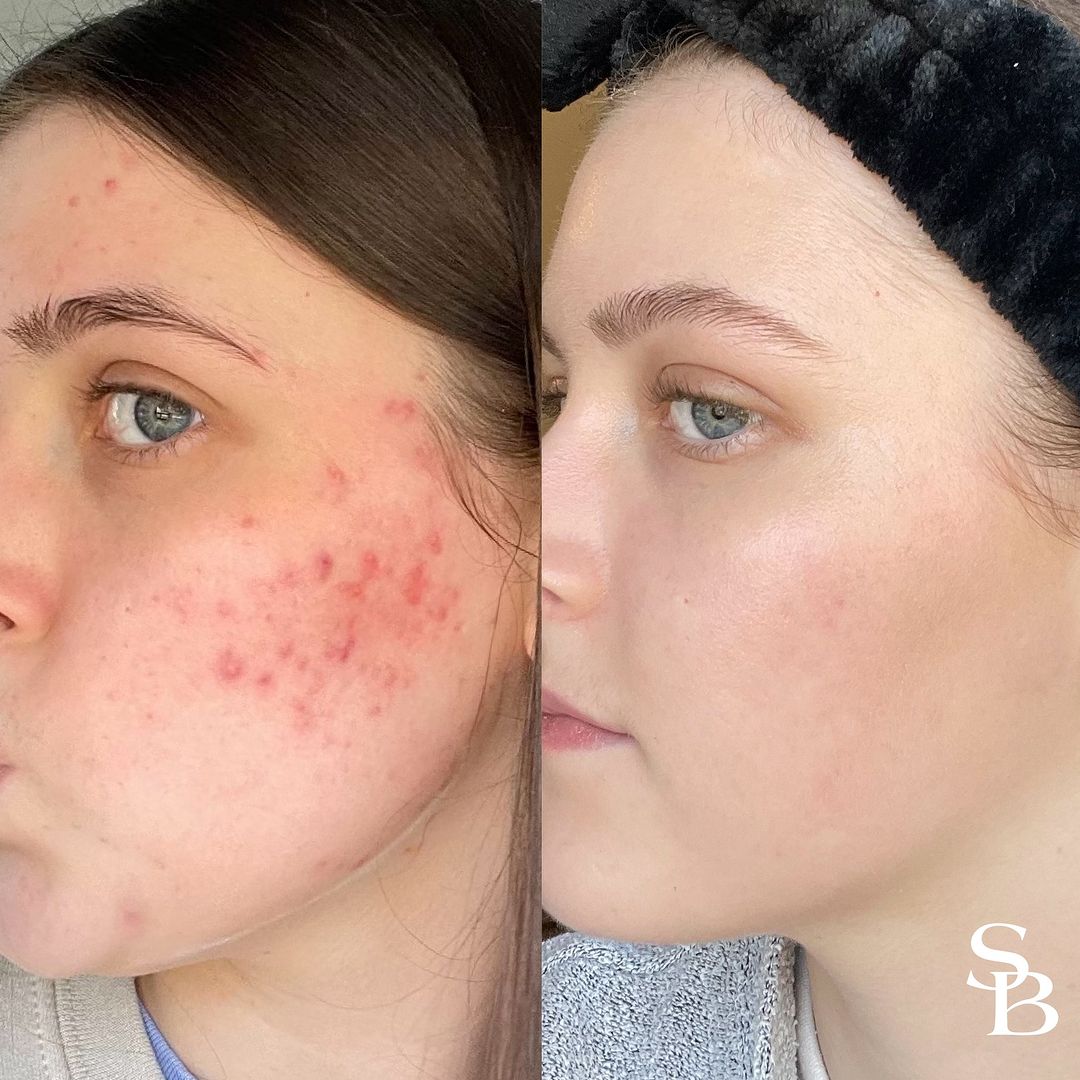
This can be frustrating, but there are a few reasons why your moisturizer might be breaking you out:
- Comedogenic Ingredients: Some moisturizers contain comedogenic ingredients that can clog pores and trigger breakouts. Look for “non-comedogenic” or “oil-free” formulas.
- Too Heavy: If your moisturizer is too thick and greasy, it might sit on top of your skin and trap oil, leading to breakouts. Opt for lightweight, water-based lotions or gels.
- Fragrance: Fragrances can irritate some people’s skin and worsen acne. Choose fragrance-free moisturizers.
Here’s what you can do:
- Review Ingredients: Check the label of your moisturizer and avoid any comedogenic ingredients like lanolin, mineral oil, or cocoa butter.
- Try a Sample: Before committing to a full-size product, see if you can get a sample to test on a small area of your face.
Consult a Dermatologist: A dermatologist can help you identify the best moisturizer for your specific skin type and concerns.
There’s a growing interest in the connection between diet and acne. While research is ongoing, some evidence suggests certain vitamins might influence acne in some individuals.
What vitamins can cause acne?
Here’s a breakdown of vitamins that have been linked to acne breakouts:
Vitamin B Complex (B6 & B12): High doses of vitamin B6 and B12, often found in supplements, have been linked to acne flare-ups. These vitamins can alter hormone levels or gut bacteria, potentially contributing to breakouts.
Iodine: While iodine is essential for overall health, excessive intake from multivitamins or a diet rich in seaweed and kelp can trigger acne in some people.
Biotin (Vitamin B7): Biotin is often used for hair and nail health, but high doses from supplements might worsen acne, especially for those already prone to breakouts.
Important to Remember:
- Not everyone experiences these side effects. Individual sensitivity plays a role.
- A balanced diet is crucial for overall health and can indirectly benefit your skin.
- If you suspect a vitamin is causing your acne, consult a dermatologist or healthcare professional. They can advise on adjusting your supplement intake or recommend alternative ways to meet your vitamin needs.
Focus on a balanced diet rich in:
- Fruits and vegetables
- Whole grains
- Lean protein sources
- Healthy fats
While certain vitamins might contribute to acne in some cases, a healthy diet with proper vitamin intake is still important for overall skin health.
Strategies for Managing Dry Acne Prone Skin
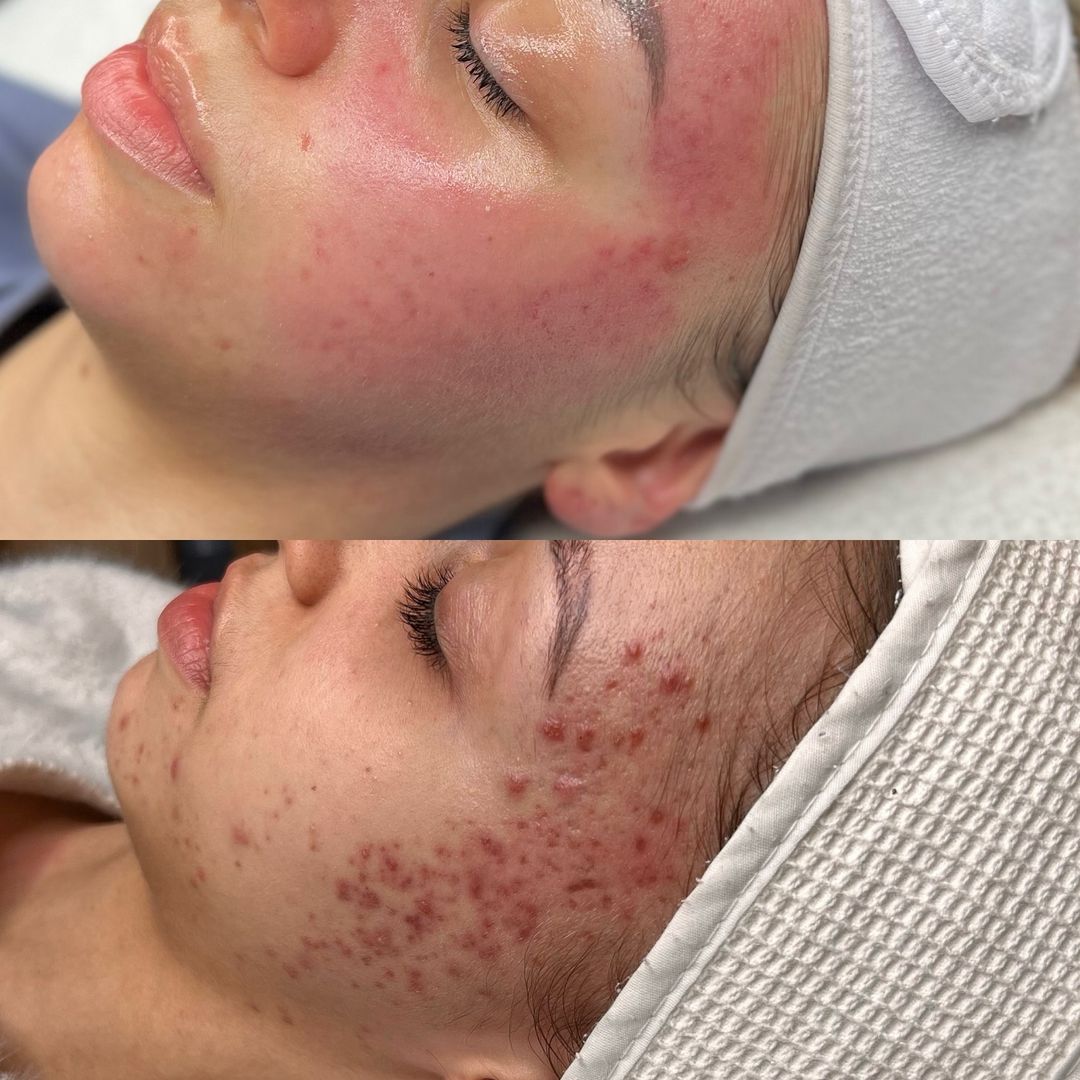
Dry, acne-prone skin requires a delicate balancing act. Here’s a comprehensive strategy to manage it effectively:
Building a Gentle Skincare Routine:
Cleanse Wisely: Wash your face twice daily with a gentle, fragrance-free cleanser. Look for formulas containing hydrating ingredients like hyaluronic acid or ceramides. Avoid harsh scrubs or cleansers that strip away natural oils.
Targeted Treatment: Apply a gentle acne treatment containing salicylic acid (low concentration) or benzoyl peroxide as a spot treatment only on blemishes, not your entire face.
Moisturize, Moisturize, Moisturize: Hydration is key! Use a lightweight, oil-free, non-comedogenic moisturizer twice daily. Hyaluronic acid and ceramides are excellent ingredients for dry, acne-prone skin.
Sunscreen is Essential: Sun exposure can worsen acne and damage your skin. Apply a non-comedogenic SPF 30 sunscreen every day, even on cloudy days.
Less is More: Avoid layering too many products on your skin. Stick to the essentials and allow your skin time to absorb each product before applying the next.
Choosing the Right Products:
- Moisturizers: Look for “oil-free,” “non-comedogenic,” and “fragrance-free” labels. Consider lightweight lotions or gels formulated for acne-prone skin.
- Acne Treatments: Opt for gentle formulas with lower concentrations of salicylic acid or benzoyl peroxide. Consider alternative acne fighters like azelaic acid or mandelic acid if your skin is very sensitive.
- Remember: Patch testing any new product on a small area of your face before full application is always recommended.
Beyond Skincare:
- Hydration from Within: Drink plenty of water throughout the day to keep your skin hydrated from the inside out.
- Diet: While research is ongoing, consider limiting processed foods, sugary drinks, and dairy products, as these might contribute to breakouts for some individuals. Focus on a balanced diet rich in fruits, vegetables, whole grains, and lean protein.
- Lifestyle Factors: Manage stress through relaxation techniques like meditation or yoga. Get enough sleep, as this allows your skin to repair itself.
Consistency is Key:
Don’t expect overnight results. Be patient and consistent with your skincare routine for at least 4-6 weeks to see noticeable improvement. Remember, even with a good routine, occasional breakouts can happen.
Remember: If your acne is severe or persistent, a dermatologist can create a personalized treatment plan to address your specific needs.
Also Read: 6 Tips to Slow Down Aging
In Crux
Dry, acne-prone skin can be frustrating, but it doesn’t have to define your complexion. By implementing the strategies outlined above, you can achieve a healthier, clearer, and more balanced look.
Remember, you’re not alone! If you’re struggling to manage your dry acne, a dermatologist can be your best friend. They can provide personalized advice, recommend specific products, and even prescribe stronger acne treatments if needed. Don’t hesitate to seek professional guidance – a dermatologist can help you create a customized plan to achieve the clear, healthy skin you deserve.
How much did you like Our detailed Managing Dry Acne Prone Skin: Tips & Products? Please share your view in the comment box. Also, please share these Blogs with your friends on social media.
Recommended

